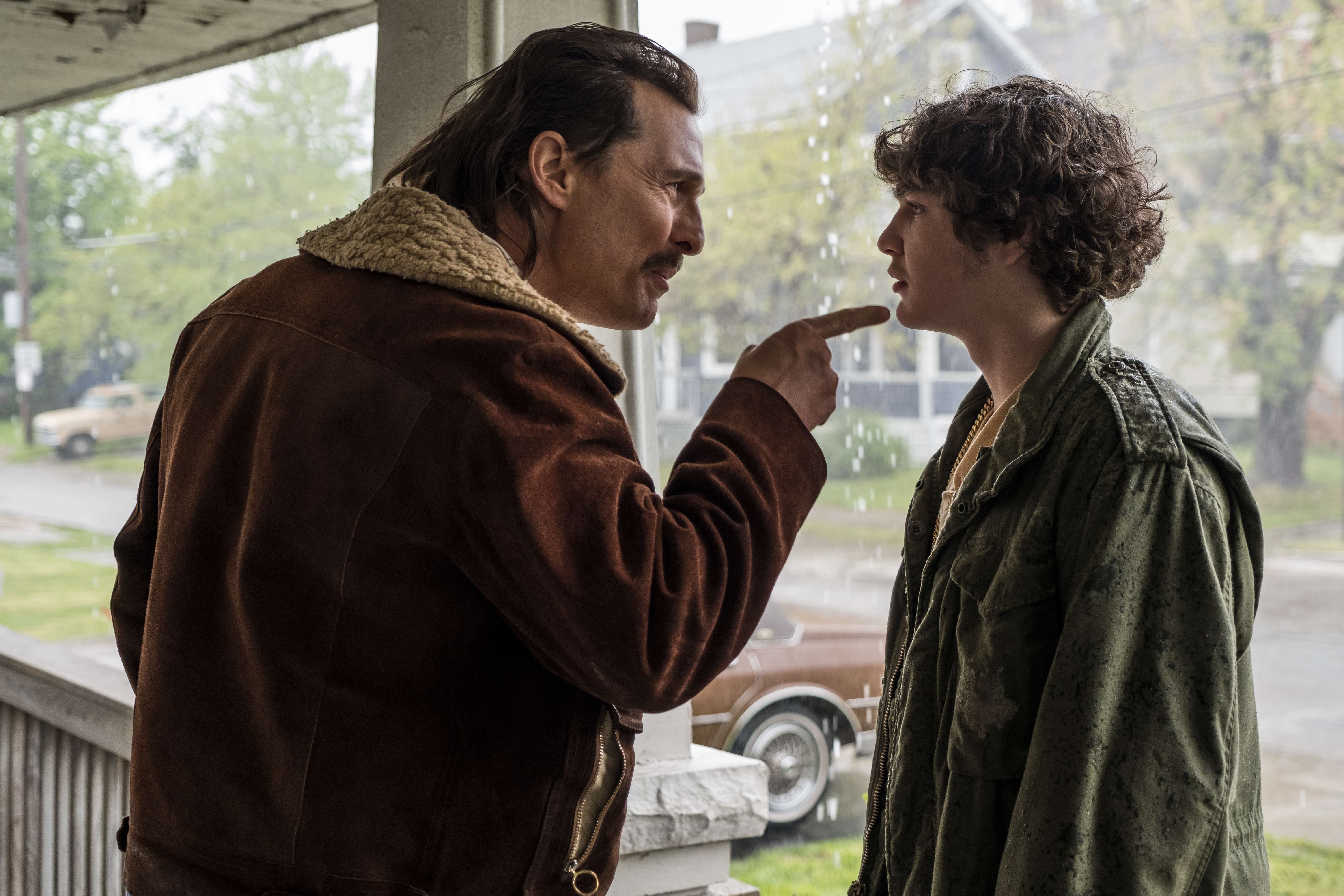
White Boy Rick has the atmosphere and footprint of a low-budget, shot-on-location crime pic from 40 years ago. We say that admiringly. Filmmaker Yann Demange’s true-story portrait of Detroit teenager Rick Wershe Jr.’s whirlwind career in the illegal firearms and crack cocaine business in the late 1980s has a shoot-from-the-hip urgency that’s worlds away from most current urban action flicks. The settings, the characters, the angry point of view, and even the cinematography are the antithesis of a sterile, overly researched entertainment product. White Boy Rick looks lived-in. We can see and hear the difference — in fact, we can smell it all the way from the back row of the theater. It’s a bracing whiff of rebelliousness.
A large part of that pungency comes from first-time actor Richie Merritt in the title role. From our first glimpse of 14-year-old Rick Jr., knowledgeably bargaining for AK-47s at a gun show with his father Rick Sr. (Matthew McConaughey), the kid impresses us. And when young Rick calmly walks up to local drug lord Johnny “Lil’ Man” Curry (Jonathan Majors) and offers his services, we’re as astounded as everyone else. This white boy with the guts to join a Black gang in inner-city Detroit has no limits and no fear. That bravado makes for some exciting scenes but ultimately proves troublesome for the kid, who drops out of high school to concentrate on the rackets.
Director Demange made the 2014 Northern Irish thriller ’71, a fearsome slice of Belfast street strife about a British soldier who gets lost one night on the wrong side of town. White Boy Rick — written by Andy Weiss with the twin-brother team of Noah and Logan Miller — adopts a similar cool, matter-of-fact approach to ultra-violent skullduggery, as Rick walks a dangerous path between the Curry brothers and a pair of snooping FBI agents, played by Jennifer Jason Leigh and Rory Cochrane. The feds are trying to set a corruption trap for the Detroit PD and the mayor’s office, and cocky-but-dumb Rick is the ideal fall guy.
While all this is going on and Rick lives the gangsta life with a Mercedes and a gold Star of David around his neck (he isn’t Jewish, and is amazed when he’s told what the star means — he just liked the looks of it), we observe the relationship between father and son. As portrayed by McConaughey in yet another of his low-rent tour-de-force character turns, Rick Sr. is an amiably sleazy hustler who sells semi-automatic weapons to criminals to raise money for his dream business, a video rental shop. “I’m a glass-half-full kind of guy,” he confides to the kid. The turf they inhabit is beat-out in the extreme: dirty snow, rusty cars, sagging front porches, and Detroit’s legendary wide-open spaces. If Rick Sr. is a pathetic Joe-six-pack dreamer, his son is all that, with the added touch of absolute single-mindedness. (Rookie actor Merritt was reportedly discovered in Baltimore, sitting in his high school principal’s office.)
McConaughey and Merritt work so well together that we almost lose sight of the industrious supporting players around them. In its energetically sordid way, this movie is a family drama. Rick Jr.’s sister Dawn (Bel Powley from The Diary of a Teenage Girl) is a junkie. Grandpa (Bruce Dern) and Grandma (Piper Laurie) are more worried about their ancient Chrysler than all the weapons around them. When Rick Jr.’s girlfriend Brenda (Kyanna Simone Simpson) gives birth to their daughter, Rick catches a tantalizing glimpse of “normal” life, but it’s a Rust Belt operetta with no winners. The real Rick Jr. was paroled after serving 27 years for dealing cocaine. White Boy Rick happens fast and hits hard.














